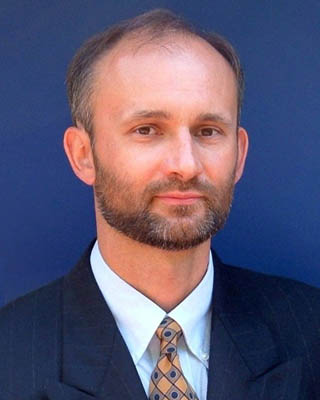Home > On-Demand Archives > Q&A Sessions >
Live Q&A - Testing of Event-Driven Embedded Software with Python
Miro Samek - Watch Now - EOC 2022 - Duration: 18:24

Yes, QSpy and QUTest use the same licensing model as QP/C and QP/C++, which means that they are available under GPLv3 and potentially under a commercial license from Quantum Leaps. Please note, however, that most of the time you don't ship the test/trace code inside embedded devices. Instead, the tracing and testing occurs in-house, where you can easily comply with the GPL.
Hi Miro, regarding your question the only comparable solution I know is from a relativly small consulting company located in Munich. They are doing many things that Quantum Leaps does with their framework called eTrice (https://www.protos.de/produkte/etrice-modellierung-in-eclipse/). They model state machines, generate code and also use traces to verify behaviour on real hardware. They worked as project partner and developed theit mini HIL project based on thos thechnique. I also tried to do something simillar on another project, but it never got beyond the demo stage as customer acceptance was not really present (meaning the time to setup the testframework was considered to high, compared to the benefits they saw) sadly.
But I think I will get your demo, play a little bit an give another try on my next project!
Thanks a lot for the pointer. It seems that I haven't yet heard of eTrice and the PROTOS company. They introduce eTrice as "Modeling of embedded systems with ROOM". QP also started as a "minimal ROOM virtual machine". Very interesting!
Correctly they started by using ROOM for 2 reasons
- technical background of founders
- ROOM is much easier to start from than current UML2 which brings much more features and confusion
As far as I remember they are also integrated somehow in the Eclipse framework.
Yes, I'm just looking at eTrice on the Eclipse Foundation website ( https://www.eclipse.org/etrice).
If anybody is interested in actually running the examples, all the code presented is available on GitHub:
https://github.com/QuantumLeaps/qpc/tree/master/examples/qutest
Specifically, the projects from the presentation are in the sub-directories: unity_strlen, unity_ledbar, and unity_ledbar2.
Excellent presentation!
I'm glad that you liked it!
12:41:05 From Enrico : Miro is legend. 12:41:18 From Al Anway : great presentation, Miro! 12:41:21 From Quantum Leaps : Thanks a lot :-) 12:47:02 From Tim Michals : Can CSpy be also used as a replacement as syslog? 12:50:02 From Enrico : Can QSpy work without a UART/USB ? For instance storing data in a ram block and then extracting it through debugger ? 12:53:01 From Jay Cosper : or dump it through some other mechanism 12:53:25 From Erwin : Thanks for the great presentation. I Love the approach very much. The only drawback to me is it conflicts somehow with "test what you fly and fly what you test" if you remove traces on release? 12:56:25 From Erwin : Thanks, really interesting thoughts. Really worth to spent more time on rethinking! 12:57:12 From Leandro Pérez : I can't see the video completely… But the approach is very interesting… I need see you another videos to understand the full concept 12:57:38 From Susan McCord : thank you Miro! Your presentations are always compelling. 12:58:18 From Enrico : Freertos or State machines ? 12:59:17 From Leandro Pérez : Good point Enrico... more for constrained devices 12:59:34 From Raul Pando : Thanks Miro 12:59:41 From Jay Cosper : thanks for the talk























Are QSpy and QUTest part of the QP/C licensing model ? or are they selfcontained tools provided with their own licenses ?